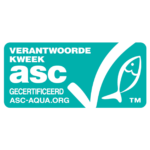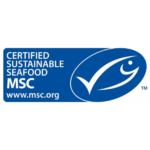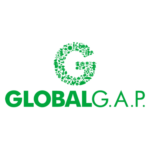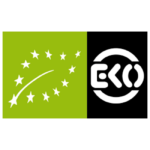Jade Perch
Europe, inland waters
Recirculation system (aquaculture)
- Jan
- Feb
- Mar
- Apr
- May
- Jun
- Jul
- Aug
- Sep
- Oct
- Nov
- Dec
Perchids (Perciformes) is by far the largest family of fishes and comprise more than 41% of all vertebrate fish. Perchids occur in either fresh and saltwater areas all over the world. Well-known perchids are seabass, dorado, mahi-mahi and weever.
Jade perch, also known as barcoo grunter, is freshwater fish native to Australia. It is an omnivorous species, which means it can eat both plant-based and animal-based feed. This forms an advantage for the farming of this species, as it does not require any input of fish, fish meal or fish oil. This species is already farmed in Australia but has recently also been farmed in Belgium.
Europe, inland waters
Recirculation system (aquaculture)

Fish with the ASC label is farmed in a sustainable manner.

Fish with the MSC label is caught sustainably.
This fish is not being overfished or is being responsibly farmed, with minimal impact on the environment.
This fish is a second choice. There are still some improvements to be made in this fishery or fish farm.
Do not buy this fish. It's being overfished or the way it's farmed or caught has a negative impact on the environment.

There is fish available of this species that is farmed or caught using high welfare standards.

GlobalG.A.P. certified farms are doing a step in the right direction in terms of sustainability. A few species with this label are getting a better score on the VISwijzer.

Organic standards are the strictest when it comes to fish feed. They also require certain measures for animal well-being.